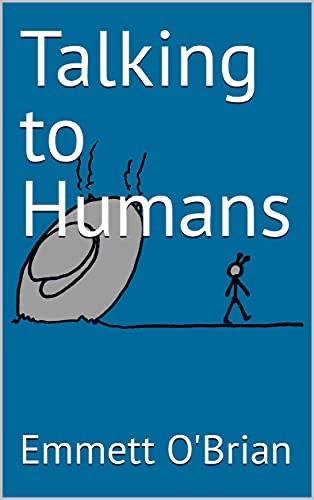When playing a role playing game, the idea that players should not be Railroaded is recognized as an almost universal truism. The problem with this truism is that its in the negative. It tells you what not to do.
What follows is a set of tools you can use to avoid railroading that are simple and intuitive. They may even help to start interesting stories for your games. Simply stated, they are broad questions to start off with. They allow the players to select a path to travel down and give the Game Master a rough structure to build an adventure from.
One thing to consider while asking players to make choices is how often are you asking and how complex are the choices. If you ask complicated questions very often, the players will feel overwhelmed and probably not enjoy the process. The more complex or long term the choice, you’ll need to give more time to make that decision.
What choices do the players have to make? Is there a limited set? These questions are very common in adventure games. This list is intended to make this part of the process a little more conscious and in that way allow a GM to inspect their own game structure.
Is this reward worth the risk?
Which is more valuable, this or that? Tradeoff
Which is more costly, this or that?
What is more valuable a reward now or a bigger reward later?
What are you willing to sacrifice for a goal?
How can this be survived?
What method should be used to reach a goal? (aka which way should we go?)
How to express yourself?
These questions are almost never asked directly. It’s best if the question is implied by events the characters encounter.
While there are plenty of ways you could use these questions, let’s look at several methods.
- Select a question you want the players to grapple with for each scene of your game. When thinking about the next scene the characters will be in, pick one question that you think will present intriguing answers. What are the consequences of either choice? If the answer to one of these questions would change the overall course of the game, try to put it at the end of the game.
- Select three questions that will come up in the next game. They can come up whenever it’s appropriate but it’s probably a good idea to give them to the players one at a time. They could be presented in a set order or each question could be linked to a place or person.
- Select a question that the next adventure is designed around. It could be asked at the beginning of the session and the implications of the player’s choice is explored throughout the game or the game may build up to the choice.
Let’s take a more in depth look at each of the questions and give some ideas about how to integrate them.
Is this reward worth the risk?
This is a subset of “Which is better, this or that?” which most questions are going to be. In this case, the full question would be “Which is better, taking this risk and possibly getting a stated or imagined reward or avoiding the risk and not getting the reward?”
This is probably the question players are most often asked at the beginning of taking up a job or quest. If you’re looking to inject some novelty into games, this could be a question to avoid. That said, it’s not a bad question. There’s an enormous amount of utility in it.
“Should we delve this dungeon? There’s supposed to be riches down there.” is the starting point for many adventures. In this case, it’s a question that is sometimes answered before the players even make their characters as that is the setting of the game. It’s assumed that if you have a character in the game, they’ve asked themselves that question and decided to go with the risk.
In sandbox games, the players are implicitly asked this question whenever they explore a new section of the map. They might stay in an area and try to extract what they can from what’s available. This often has some challenge associated with it which they will risk.
A twist on this question comes up when the players have an obligation to take on tasks. For example if they are part of an organizing group like a military or police force, they are assigned tasks. The question then becomes “Is avoiding risk worth the penalty?” The reward here is to keep your job and/or good standing with an organization. The risk is any hazards the task requires along with what the organization can do to you if you don’t do your job.
Which is more valuable, this or that?
This question could be interpreted very broadly, so broadly in fact that it loses any differentiation from other questions. For the purposes of this list, we’ll constrain it’s interpretation to mean choosing between rewards.
For this question to have any meaning, the two (or more) offered rewards have to be mutually exclusive, meaning that you can’t have one and then go get the other.
For an example: Which is more valuable, saying up and watching youtube videos until late at night or going to bed early, getting a good night sleep and making your significant other happy with you?
You can do one or the other but not both. There is a condition that prevents the players from just saying “Yes please” to both.
The easiest constraining factor to imagine for these situations is time. (And that only works if the setting doesn’t have time travel or super speed.) That’s because time is a resource that gets used up. So realistically, this question is akin to “What would you rather spend your X on?” with X being a finite resource.
Another way to bring this kind of choice out is to have some kind of a door close when the other choice is achieved.
“When you pull the sword from the stone you’re made king, you cannot go back to the quiet anonymous life you once enjoyed.”
Building an impenetrable door is hard though. A determined player may quickly find a loophole and claim both prizes. This might not be all that bad, after all, the players are showing initiative and thinking ability. Maybe they deserve both? It would be bad though if getting both destroys the tension in the story and makes play boring.
In most cases, this kind of choice is interesting when the types of rewards reflect different values because they reveal something about the Player Character. A choice between two +1 swords is not interesting. A choice between protecting a relationship or gaining power says something.
A twist on this would be to only hint that the choices are exclusive. The question of “Can we do both?” can be very exciting and even get the milage of having the PCs try for both only to find their fears confirmed. As a warning, it’s best to not spend too much of the player’s time trying to achieve both or they’ll just get annoyed. A quick attempt is better if that’s the way you want to go.
Which is more costly, this or that?
This is similar to the the question “Which is more valuable, this or that?” but instead of choosing between two rewards, the choice is between two penalties.
This choice is usually the most palatable in the middle of a story as a second act. It is the basic idea of being “between a rock and a hard place.”
This question structures itself easily because the players will want to avoid as many of the penalties as possible.
In one form of this question the two penalties are rushing toward the characters. The primary structure that the GM must build has to do with making the paths to avoid facing both penalties obvious but each path leads straight through one of the dangers.
For example, the PCs are being pursued by the king’s guard and the only way to avoid them is to hide out by begging the forgiveness of a crime lord that they’ve had bad dealings with.
Another way this can be structured is for a player character goal to be situated behind a barrier and the penalties are the easiest path to get to the goal.
Do you go through the Gap of Rohan or through the Mines of Moria?
Impenetrable barriers are tough things to create and the players may figure out a way straight through one without paying the penalty. If they do so, is it really that bad? Maybe they deserve to skip through the danger for being so clever. Maybe they could face a less daunting penalty they didn’t expect because of their plan, but whenever possible, it’s best to reward good thinking.
A twist on this is that one or both of the penalties may be illusory. Maybe it’s only rumored that the king’s guard is hunting down the characters. This is usually an interesting twist when both options seem unsurmountable. Tension rises while the players think that impending doom is knocking on their door only to find out they’ve been running from nothing. Going to the crime lord might go badly, but the characters are given a chance to get away finding no shelter. They then panic thinking themselves about to die when… nothing happens. Maybe the crime lord planted the rumor? Maybe the rumor was planted by a weaker rival?
What is more valuable a reward now or a bigger reward later
This choice balances instant with delayed gratification. This choice shares a lot of ground with “Which is more valuable, this or that?” but is specific in that the choice is about time and value.
With the other question, it’s not clear which reward is more valuable until the players choose one. In this case the immediate reward is expressly less valuable.
The need to prevent the players from claiming both prizes still applies. Since they are time shifted, it’s much harder to frame this choice as an issue of not enough time.
In most cases, this choice will be presented by a character who can give one reward or the other for deeds done. It could also be a matter of something that needs time to progressively improve and drawing on it too early means it does not reach its full potential.
A twist on this could be that the reward gets greater for a while, but if left too long the reward will diminish. The idea here being the idea of fruit on a tree. If picked too early, it’s not ripe, if not picked soon enough it drops off the tree and rots.
Another twist on this is the idea of an investment where time is not the only requirement, but another resource is also required that would have been useful in other ways had it not been set aside.
What are you willing to sacrifice for a goal?
This is an open ended question and it raises some problems of how to ask it of your players. Simply telling your players “You must give up x to achieve your goals” is not a question. The goal here is to extract a cost, but that cost is determined by the players.
This is a traditional structure in storytelling where the author decides that their characters need to feel some pain before reaching a goal. Without the pain, the goal has little emotional value. The same thing can be true of in game goals but the GM can’t as easily set the stakes for what ought to be sacrificed.
So how can you set this question up? If the goal is to marry into the royal family, what is a proper sacrifice? The players might offer money. In sufficient quantities that could work. What if they offered up their identity? Can that work? I sort of does in a bunch of classic stories. Think Aladdin for example, although he’s also sacrificing a wish. What if they offer up their best friend? That’s not going to be so straight forward but it could work given the right circumstances.
Marrying into a royal family is probably going to be a long term goal. Shorter term goals can work the same way. What if the goal is information? You can offer money to gather information. You could go undercover to sacrifice your identity and do some hard work tailing people and making contacts. You might even sacrifice a friendship (somehow).
It helps to have an idea of both the size of the goal and some types of sacrifices that might make the goal attainable. It’s also important to have an open mind to solutions the players may present.
Twists on this question might be that someone suggests a sacrifice that benefits themselves. They have the power to make the goal happen in formality but often the sacrifice is used to nullify the true intent of the goal. Achieving the goal in the true sense now requires defeating the trickster.
How can this be survived?
This is a very open question that often the GM might not know the answer to. Usually a dangerous situation is presented and the players have some warning that it’s coming. This does not have to be a physical danger, it can be financial, emotional or social. In most cases it should be obvious that this danger cannot be opposed directly, that doing so will cause ruin.
The question is answered with a plan made by the players. The plan does not need to defeat the danger, only prevent the defeat of the Player Characters. Plans may take the form of running away, parlaying an aggressor, hiding out until the coast is clear, feigning an attack to buy time, or any number of tactics.
When asking this question, it’s best to not set a single method of survival. It could be useful to have a few rough ideas of how to survive so you have thoughts on how to structure any tests that come up.
Whatever the actual plan is, it’s the GM’s job to attempt to make it viable. Enabling a plan too far would however invalidate the question so it’s fair to set up costs for the plan and if the characters are able to discern those costs, warn of them.
A twist on this is if the goal is to trap the characters. This changes the stakes and it may be a viable plan to simply allow themselves to be captured.
What method should be used to reach a goal?
This question is all about choosing a path to get to a desired destination. This includes tactical choices like turtling or rushing an enemy.
You set out to find treasure in the underground catacombs. There are several small tunnels that go left and a large tunnel that continues forward. Which way do you go?
Or.
He’s been murdered, that much is certain. How do you want to go about investigating?
There is an obvious intent that the players are going to move toward but there isn’t any one method that is clearly better than any others. This question is useful for getting the players exploring. Along the way, their explorations are likely to bring them into conflict.
For sandbox games, this question is the one most frequently asked of the players. There is no main path to take, the only thing that gives the characters direction is that there is a goal to reach for.
The primary twist for this question is that while the characters are finding their own path, new goals are presented. This is often in the form of someone asking the characters for help.
How to Express Yourself?
Players want to make the game their own by their expressions. While all the questions are a form of expression, the rest have some kind of goal in mind. In this case the question exists solely for the character to add flavor to their experience.
What color will you paint your race car?
or
Describe how your character looks.
This is often a question that the players start off asking in order to establish their character. If the question establishes a vision for the character early on, it can have a large impact on the direction of game play.
A twist to this question is to make what would seem like a frivolous choice become critically important. The player chose to buy a hat but that style has political meaning to the people in the city and wearing it changes how people view them.


